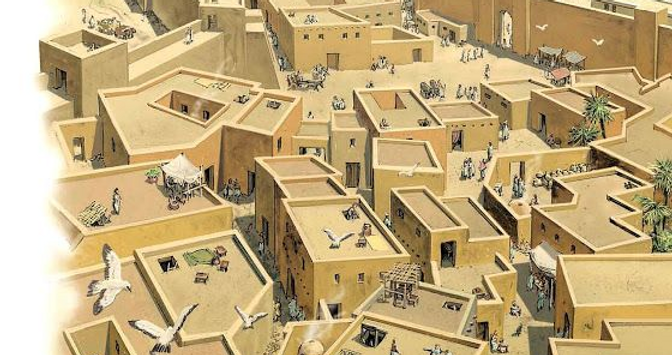Mesopotamia Town_ARPG_AClike
In the urban heart of Mesopotamia, a majestic castle stands surrounded by military encampments and dwellings, where people suffer under the tyranny of a despot. Players, as part of an assassin's guild, must give voice to the oppressed populace and weaken the army's influence.
Engine: Unreal Engine 5
Playable File:
https://drive.google.com/file/d/1Yc5YFcnFMczslPgsoCESwphUKeWYO5MT/view?usp=drive_link


Step 1 : Idea & Brainstorm
I conducted research to root the story in order to determine the layout of the level, including research on the internet and not neglecting books.


Step 2 : Prototype
I want the enemies to be a team that can communicate with each other and are somewhat alert. Therefore, each enemy's visual and auditory ranges are relatively small, but they will share information about the player's location.


Step 3 : Gym & Metrics
Because the game uses a third-person perspective, players can see a wider and higher field of view than normal. Therefore, for the flipping heights, I have designed three detection points on the legs, waist, and chest. Anything at the chest level and above cannot be flipped over.

Step 4 : Top-Down & Molecule Map
In this section, I aim to create a linear level within an open-world context, so I need to ensure that the player's movement path is meticulously designed, and the map possesses ample connectivity. In this part, we are going to design basic gamespaces. Those Bullpoints are in a stright line.

Step 5 : Blockmesh


To achieve the expected experience for the players, each building area has a highest point from which one can see half of another area. Players can see the overall pathways and estimate the number of enemies. Additionally, since the enemies and NPCs are sentient, I use an emotional loop design to guide the placement design of the level areas.




Step 6 : Add AI & Behavior Tree
Once the initial map is completed, I begin scripting the AI's behavior trees and patrol routes, ensuring each area presents a relative risk without subjecting the player to pursuit by enemies from across the entire map. And Set some dangerous areas for Introducing Emotional Level Design through Survival Instincts.

Step 7&8: Playtest and Iteration
"One of the most helpful suggestions during testing was that my levels were not three-dimensional enough, and players did not feel the freedom of running freely on rooftops. Therefore, I added secondary areas around each high-rise area to ensure the map's walkthrough is more diverse and does not obstruct the view. This further enriched the differences between the basic paths and gameplay style paths."

Step 9: Add assets as Art style Ref [from internet]

